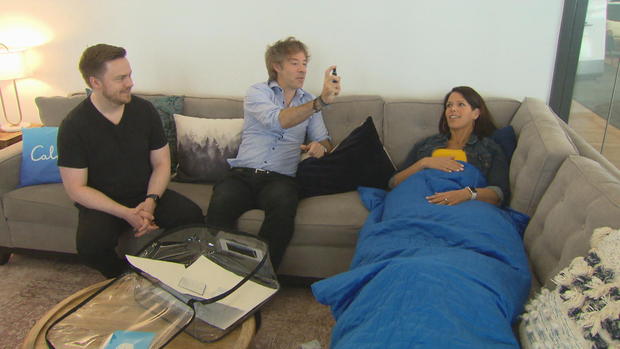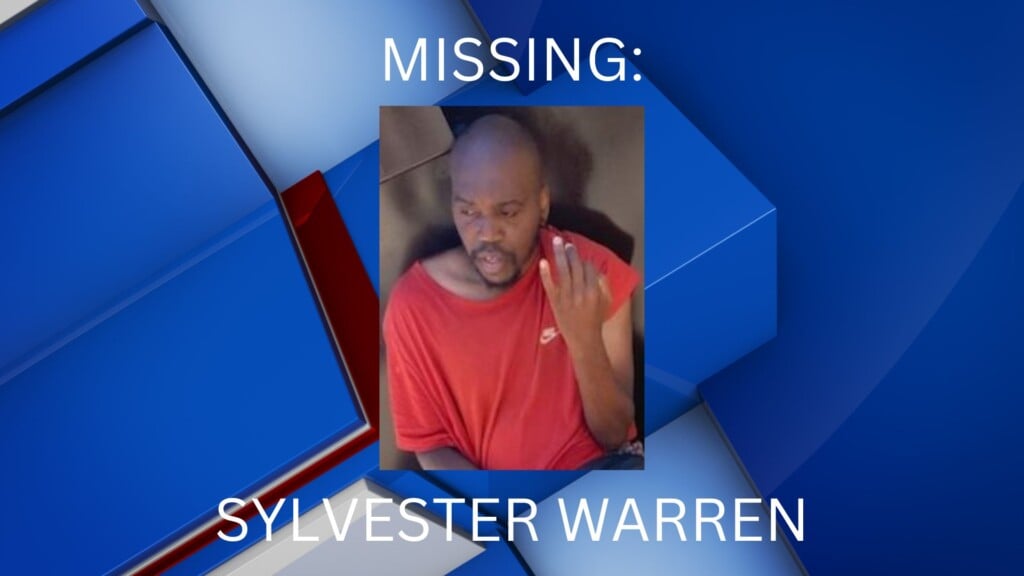Inside the $70 billion industry designed to help you sleep
Over the past few years, humans have been waking up to the fact that sleep is essential to our well-being and productivity. The resulting demand for a good night’s sleep has created a $70 billion industry, full of products aimed at helping you rest more effectively.
Elizabeth Segran has taken full advantage of the burgeoning industry, filling her bedroom with a variety of gadgets that help her get the 8 ½ hours of sleep she said she desperately needs each night to function.
“Sleep is hard,” she said.
Segran, who reports on the sleep industry for Fast Company magazine, said that “we’ve begun to realize that enough sleep is key to being optimal, to being productive.”
“It’s your health. It’s your weight. It’s your productivity at work, all of those things,” said “CBS This Morning: Saturday” co-host Dana Jacobson.
“Absolutely,” Segran said. “And so suddenly people began to realize that it was something worth spending money on. And that’s when companies began to realize, you know, number one, ‘We can solve this problem,’ and number two, ‘We can probably make quite a lot of money.'”
According to Segran, we’re living in a golden age of sleep aids. That includes weighted blankets, hoodie pillows, and sleep trackers that go under your bed or on your finger.
Segran has a sound machine that bounces sound waves off the walls, providing just the right amount of white noise for the size of the bedroom. She also takes CBD oil nightly to relax.
“So you get a little test kit they give you, and they give what’re called little flights,” Segran explained. “And then you try it out and then you see what works for you before you order the amount that you need.”
Once she’s asleep, a sleep tracker under her mattress tells her the length and quality of her slumber.
“And then it also offers you advice,” Segran said. “So it coaches you.”
The company Sleep Number started embedding sleep trackers in all of their mattresses, calculating what it calls your “SleepIQ.” The company’s beds also adjust firmness throughout the night and even offer a layer that fits under your sheets that controls the temperature of the bed.
Dr. Thanuja Hamilton said sleep is priceless – but that getting it doesn’t have to be expensive. “I suggest setting an alarm at night, about half an hour before bed,” she said. “That’s when that trigger goes off, you start winding down. If you want to meditate, if you want to write a little bit, set that ritual for bedtime and don’t be late to bed.”
Alex Tew and Michael Acton Smith started their company, “Calm,” as a meditation app. But it quickly evolved into something more.
“About 2 ½ years ago … we noticed there was a big spike every night, just before 11:00 p.m., all around the world, of people who were listening to the meditations to help them fall asleep,” said Acton Smith.
Their high-tech solution? Bedtime stories.
“We thought, ‘What if we could create bedtime tales that were designed to help people drift off to sleep?’ And we used to love, when we were kids, to have stories read to us,” Acton Smith said. There are now 144 stories available in the calm app, including tennis legend John McEnroe reading “The Rules of Tennis.”
“Wonder,” narrated by Matthew McConaughey, has been listened to 4.3 million times. Tew said he and his wife have listened to astronaut Terry Virts’ story around 500 times.
“It still works because it’s almost become a signal to us,” he said. “As soon as it comes on, it’s time to sleep.”
Calm has broadened its reach to include physical products, too, including a partnership with weighted blanket company Gravity and a branded mist pillow spray with essential oils.
With so many products, it’s easy to get wrapped up in the excitement. But as someone who’s tested all of these products, Elizabeth Segran offered a tip for overwhelmed buyers.
“I think it’s really important to diagnose why you’re not sleeping,” she said. “So is it that you’re extremely anxious? If so, then you need to think about the things that you can do to relieve that anxiety … if the problem is that, you know, you’re sleeping hot … perhaps what you need is bed sheets that are climate-specific”
But unfortunately, there’s one problem brands haven’t figured out: adding more hours in the day.
“I think [that’s] one thing that the companies can’t really help us with,” Segran said with a laugh.






Leave a Reply